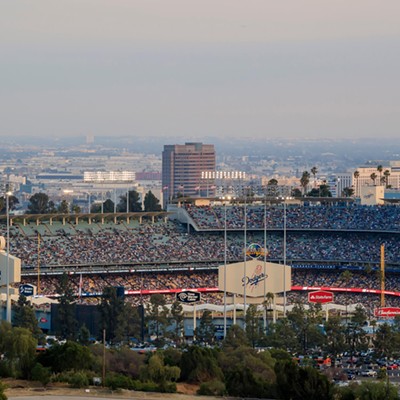In November of 2003, President George W. Bush secretly flew to Iraq to serve Thanksgiving dinner to American troops. I thought it was cool as hell. Some of my Democratic friends sniffed and dismissed it as a stunt. I remember thinking that even if it was completely a stunt, it was still cool as hell.
I had been against that particular American misadventure from the very beginning. I was correct in believing that it was a monumental mistake, one that would cost thousands of American lives and obscene amounts of money, and would neither make this country any safer nor get us any closer to finding the people responsible for the attacks on Sept. 11, 2001. Furthermore, the invasion of Iraq was based on "intelligence" that an eighth-grader could have seen through. (Remember those nonexistent weapons of mass destruction?)
I was in complete agreement with going into Afghanistan to look for Osama bin Laden. If I had been president, I would have used every asset available to hunt him down to show him and the world that if you mess with the United States, there will be swift and fatal consequences. With that in mind, the Iraq invasion served only as a huge distraction from what should have been the only mission.
Nevertheless, American troops were serving in Iraq and the American president went halfway around the world to be with them on a day that's important to all of us. I'm sorry, but you just can't hate on that.
I would like to think that I'm open-minded enough to give credit where it's due in all such situations. What I'd really like is for some people to be open-minded at least once in their sorry, narrow lives.
A recent poll shows that more than half (53 percent) of those surveyed now think that we should keep Obamacare and make whatever fixes to it that are necessary. (It will probably need several tweaks over the next decade or so, but simply calling for its repeal does not a fix make.) After the initial rollout cluster-blunder, the system is working remarkably well. Millions are signing up, the sky isn't falling, and it appears to be a nice addition to the American safety net that includes Medicare and Social Security. As a matter of fact, the implementation of Obamacare is proceeding much more smoothly than did that of either Social Security or Medicare, and you can't find an American who thinks we should get rid of either one of those programs. (Except maybe Martha McSally.)
But I turned on the radio the other day and heard 20-years-past-his-time Rush Limbaugh blathering on about how it's not too late for Republicans to repeal Obamacare. The fight's not over. Really?!
The Republicans may well ride the death rattle of the argument against Obamacare to victory in November, but to what end? Two years of political gridlock with Obama still sitting in the White House? If that's the Republican strategy—two years with nothing done about immigration, jobs or the economy—it will lead to an astronomical ass-whuppin' in 2016.
I just don't understand why, after six years of simply screaming "No!" and not offering an alternative, opponents of Obamacare can't let it go. As petty as they are, I don't expect them to tip their hats, but they ought to be able to offer a collective shrug and move on.
A local example of this is brewing and it's not going to be any prettier. For decades, downtown Tucson was considered a delightful mess by a handful of people, while most other people simply considered it a plain old mess. It was more Forbidden Zone than Destination and, as the years went by, Big Plans for Downtown came and went. Untold millions disappeared down the Rio Nuevo rabbit hole and nothing ever got done. While civic leaders held meetings and made plans, the Republicans' response never changed. "Let the free market decide," we were told.
But now, apparently, that tune is changing. We hear nothing but screams from Republicans and we're not sure whether they are screams of derision or screams of pain from having done such an abrupt one-eighty.
With the modern streetcar set to begin operations in a couple of months, a new report shows that there are more than 1,500 new housing units and 50 new restaurants, bars and cafes along the streetcar route. An estimated $800 million of private-sector money is being invested along the route. I may have to consult with an economist, but that certainly sounds like free-market activity to me.
Republicans now argue that the streetcar is helping to turn downtown into a satellite community of spillover housing for University of Arizona students. What's wrong with that? If I had the money, I'd open a 24-hour Subway sandwich place on Congress today. Downtown is going to have a different demographic and a decidedly different vibe. That will be good for some and bad for others. Just last week in this paper, Margaret Regan wrote about whether the government-subsidized arts district will be able to survive in the new downtown.
I think the streetcar-centric revitalization is going to work. I'm certainly hoping that it works. For too many decades, the university has used Tucson solely for its own purposes. I think that a little symbiosis will go a long way here.







